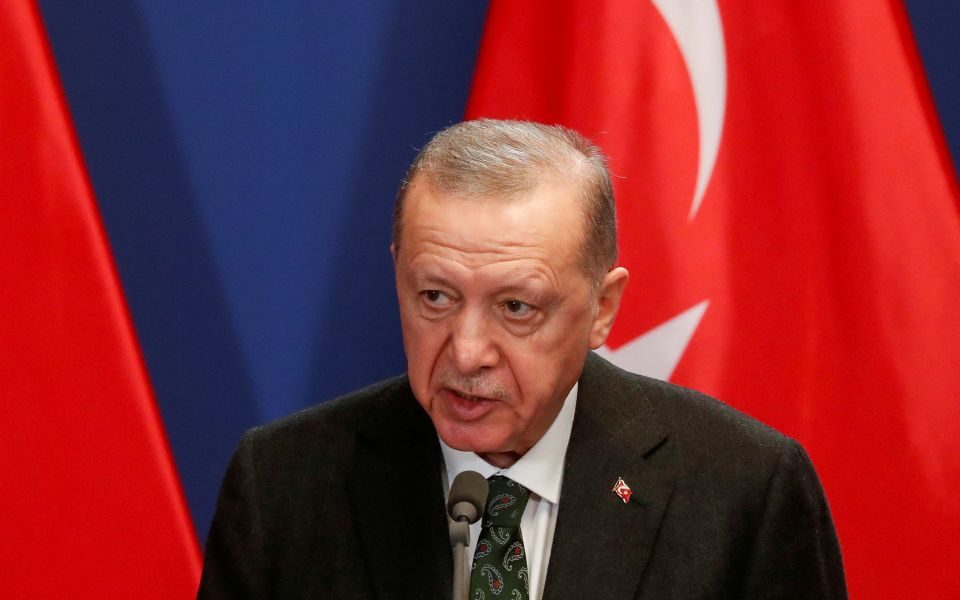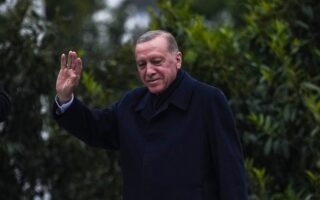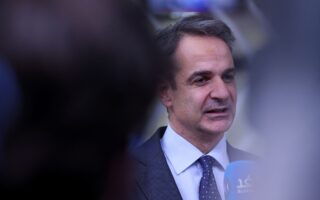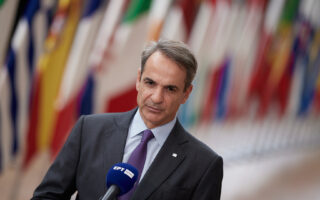Erdogan says signals from US, Canada may help Turkey move on Sweden NATO bid

Turkish President Tayyip Erdogan was quoted on Tuesday as saying that positive developments on the US sale of F-16 fighter jets to Ankara, and on Canada’s arms embargo, would help Turkey’s parliament move toward ratifying Sweden’s NATO membership bid.
After long-time non-alignment, Sweden and Finland asked to join NATO last year after Russia’s invasion of Ukraine. But NATO member Turkey raised objections over what it said was the two countries’ protection of groups that Ankara deems terrorists.
Turkey endorsed Finland’s membership bid in April but, along with Hungary, it has kept Sweden waiting.
“Positive developments we expect both on (procuring US) F-16s and Canada’s promises [on lifting its arms embargo] would help our parliament to have a positive approach on Sweden … All of them are linked,” Erdogan told reporters on a flight returning from Hungary, according to a text shared by his office.
Turkey asked in October 2021 to buy 40 Lockheed Martin Corp F-16 fighters and 79 modernization kits for its existing warplanes.
US President Joe Biden’s administration backs the $20-billion sale, but there have been objections in the US Congress over Turkey delaying Sweden’s entry into NATO and over its human rights record.
Canada, for its part, quietly agreed to re-open talks with its NATO ally Turkey on lifting export controls on drone parts, including optical equipment, after Erdogan signaled in July that Sweden would get the green light from Ankara, Reuters reported.
Erdogan said that he discussed the issue of Sweden’s NATO accession with US President Joe Biden in a call last week.
“In the call, Mr. Biden said: ‘You pass this [Sweden’s NATO bid] from the parliament and I will get it (F-16 sale) passed from the Congress’,” Erdogan said.
EU will “stall” Ukraine, Moldova accession
Erdogan was also cited as saying the European Union would stall Ukraine and Moldova’s accession to the EU, adding that Ankara had long earned the right to join the bloc but was being kept waiting for political reasons.
EU leaders agreed last week to open talks with Ukraine even as it continues to fight Russia’s invasion, while also starting talks with Moldova. But the bloc could not agree on a €50-billion package of financial aid for Kyiv due to opposition from Hungary.
Ukrainian President Volodymyr Zelenskiy hailed the move as a “victory” for Ukraine and the European continent.
Erdogan said Turkey, which has been an EU candidate since 2005, had long earned the right to join the bloc but had been stalled over what he called political obstacles.
“Giving them candidate status does not mean they will become EU members. A process will start with them, they will be stalled too. None of these countries are a Turkey,” Erdogan was cited as saying by his office.
“It is wrong for Turkey, which is more ready to join the EU than some member states, to be kept waiting at the door for years due to political obstacles,” he added.
Turkey’s bid to join the EU has been frozen for years due to EU concerns over Turkey’s record on human rights and differences over regional policies, namely in the eastern Mediterranean and over the ethnically-split island of Cyprus. The bloc depends on NATO member Turkey’s help, particularly on migration.
Although membership would likely be years away, the decision at a summit in Brussels takes Ukraine a step closer to its long-term strategic goal of anchoring itself in the West and freeing itself from Moscow’s orbit.
Erdogan said Turkey’s “strategic and economic” potential had long earned it the right to join the bloc – which Ankara says is a strategic goal – and added that progress might be seen in this process during the term presidency of Hungary, with which Turkey has good ties.
“The EU needs to turn back from this mistake now,” he said, according to his office. [Reuters]





